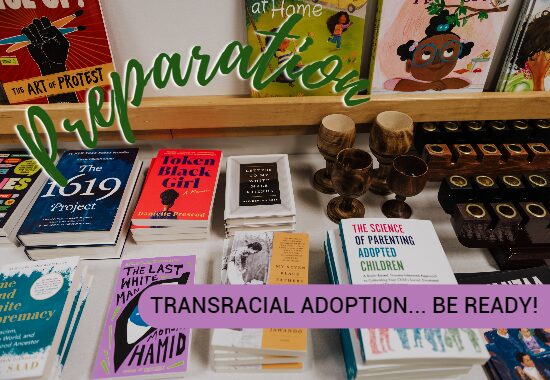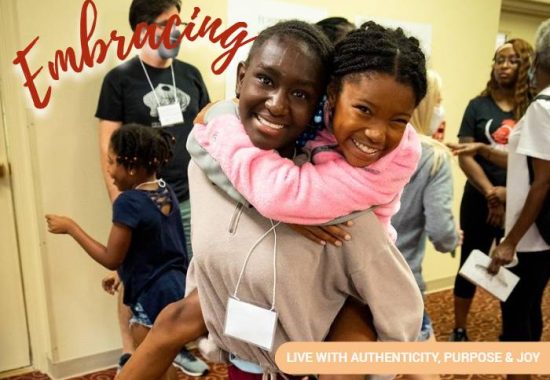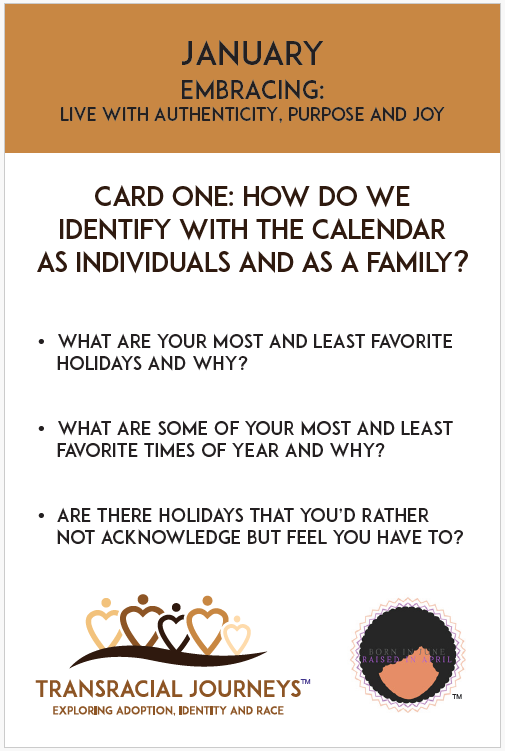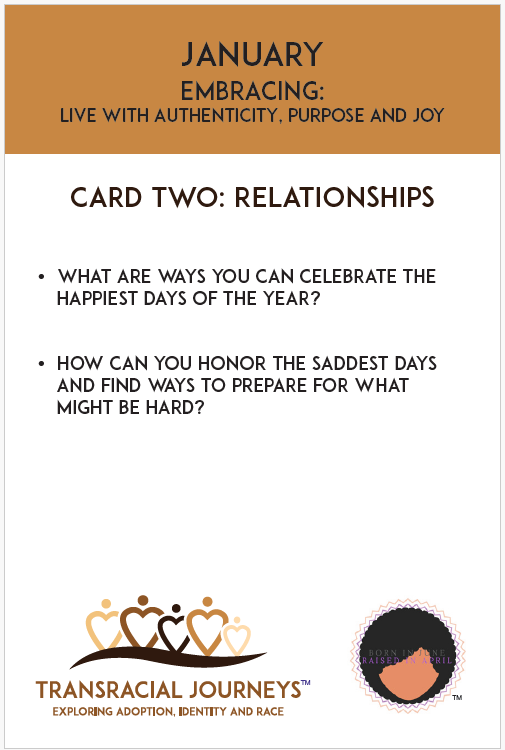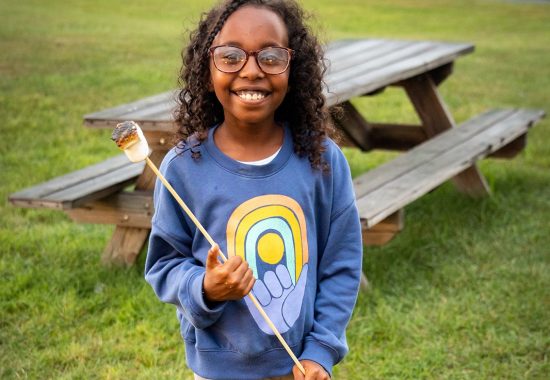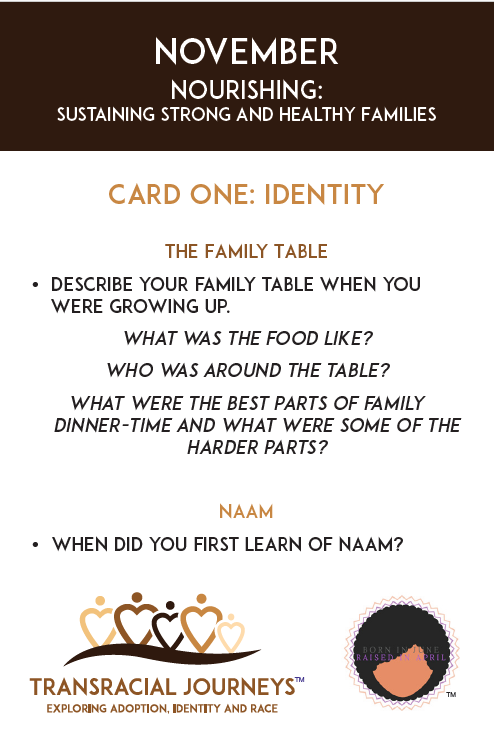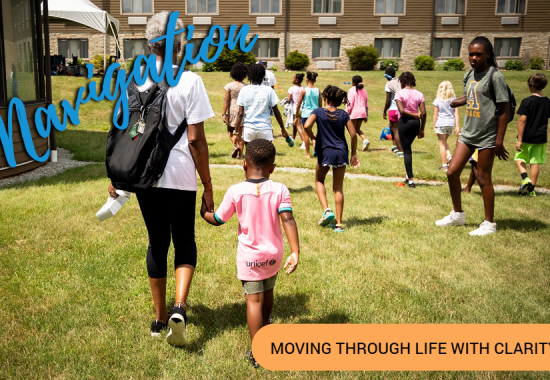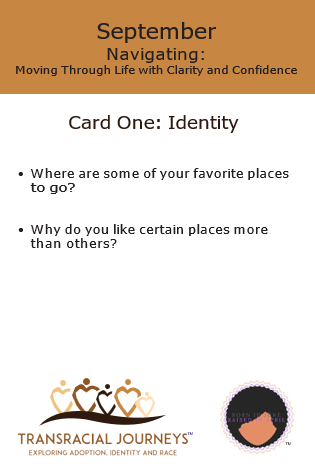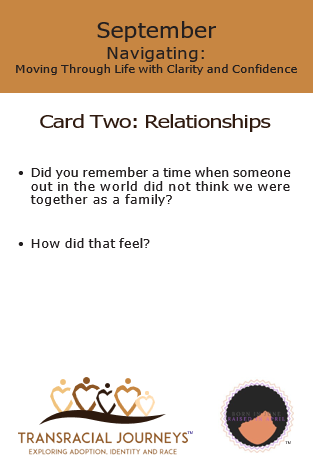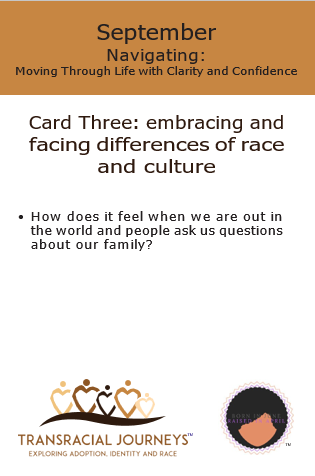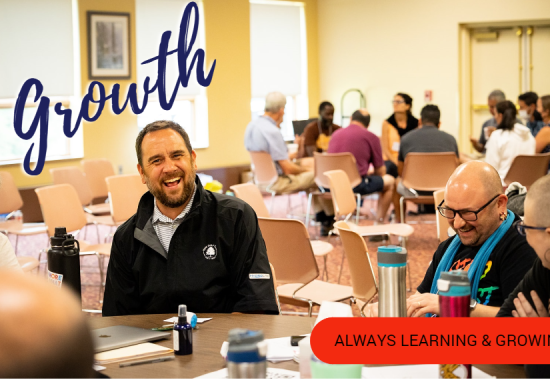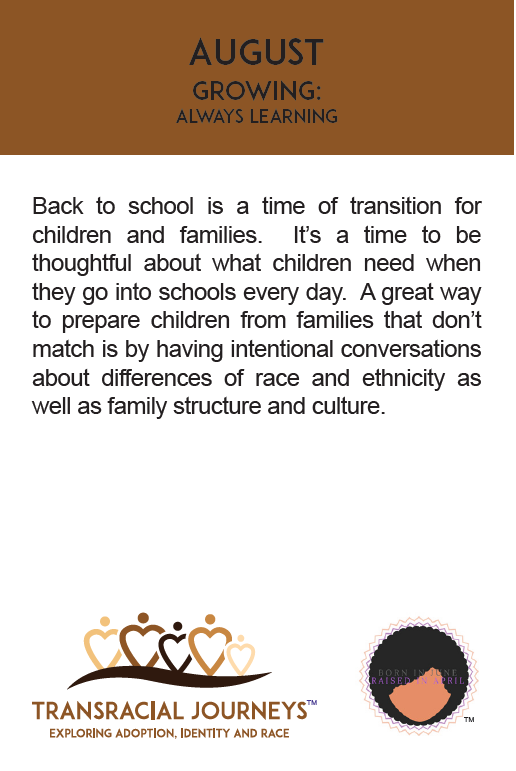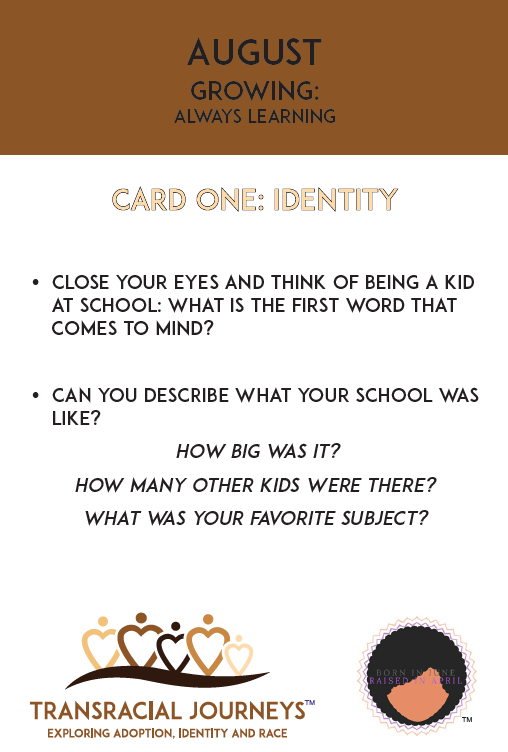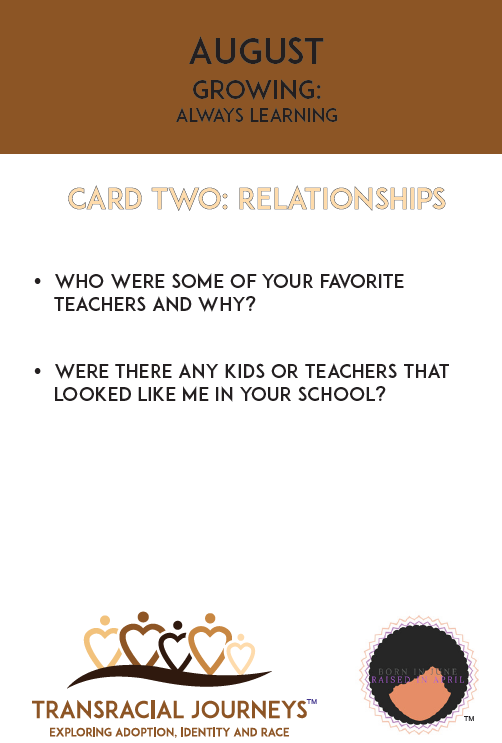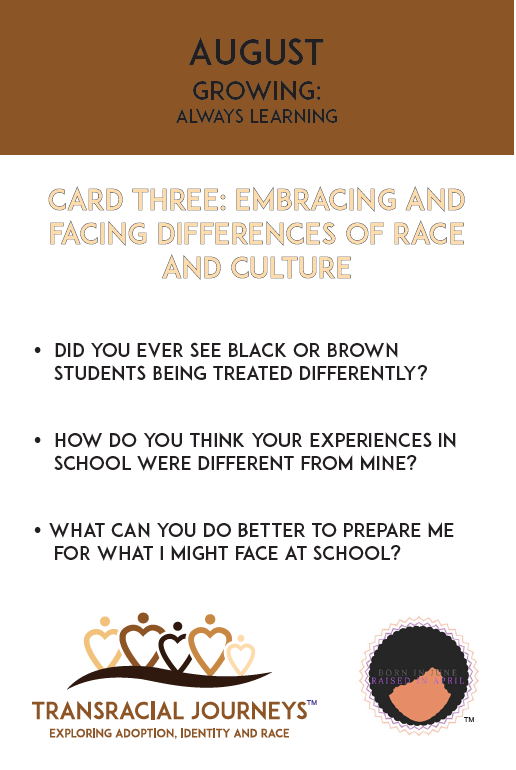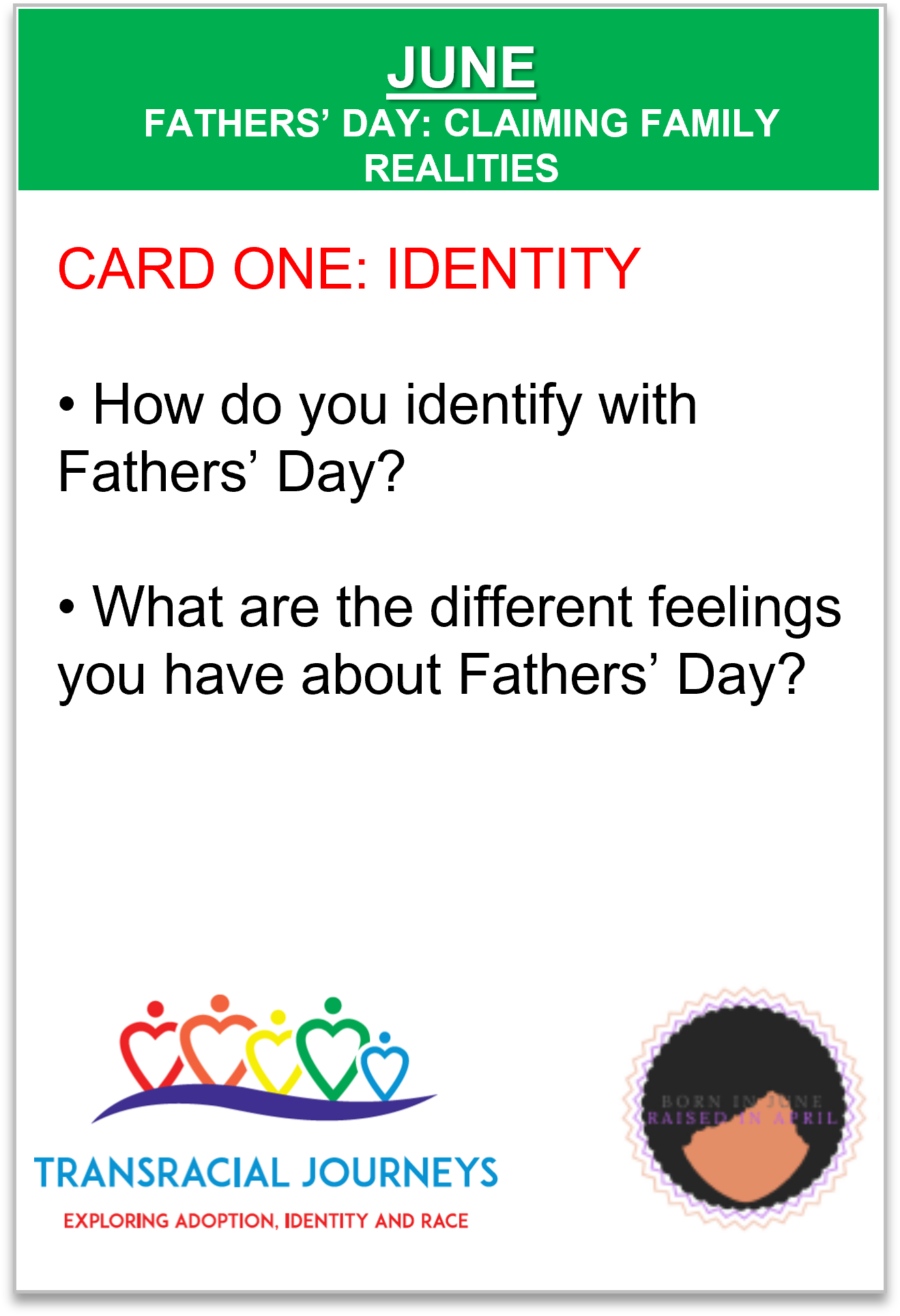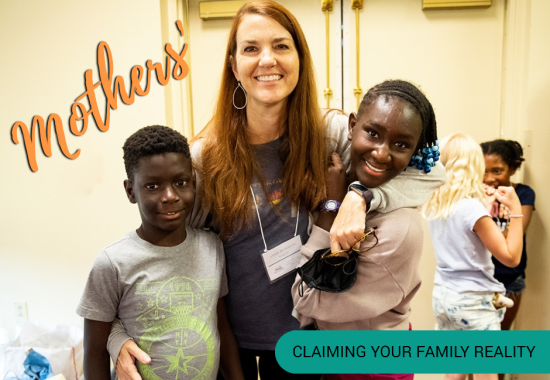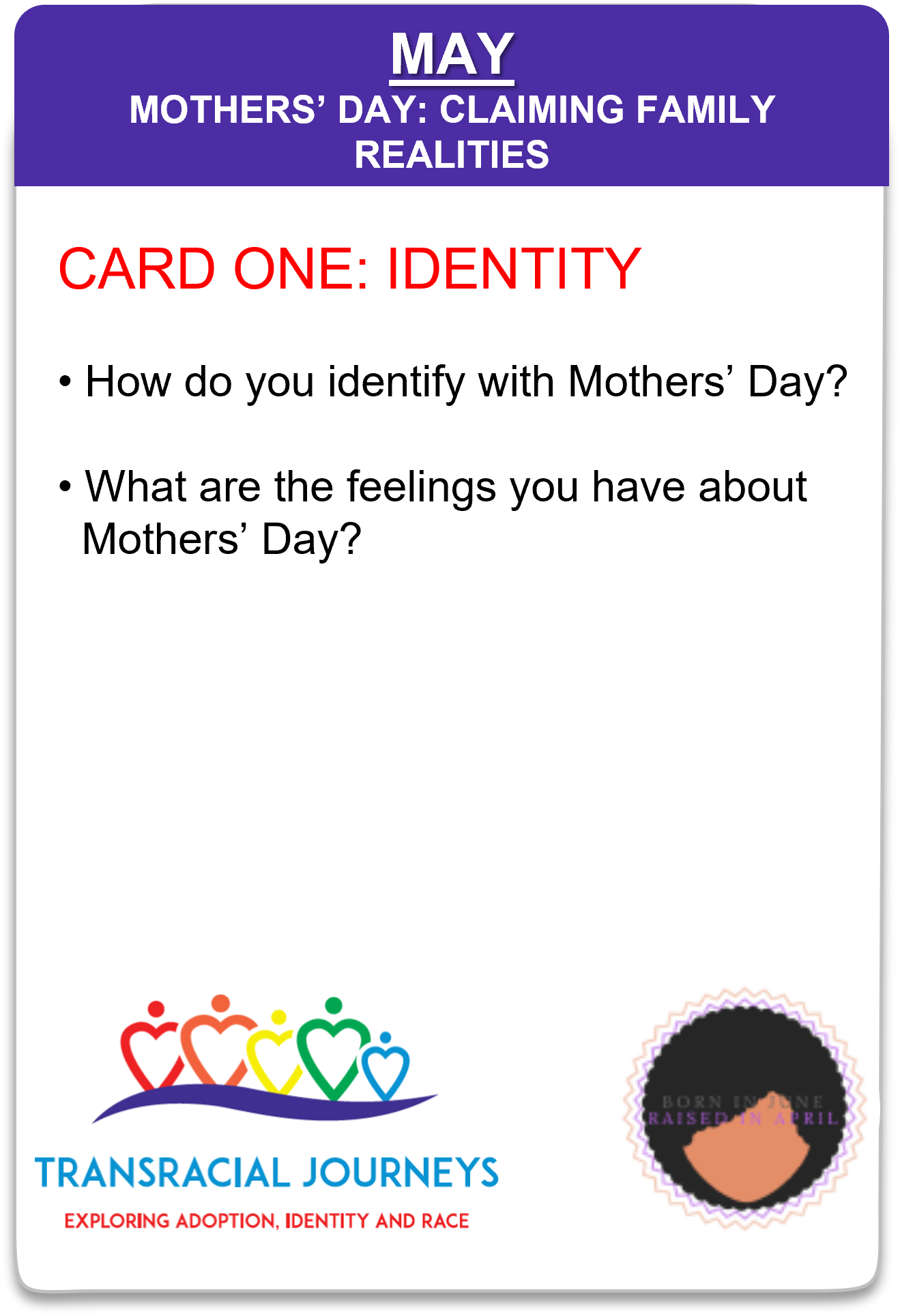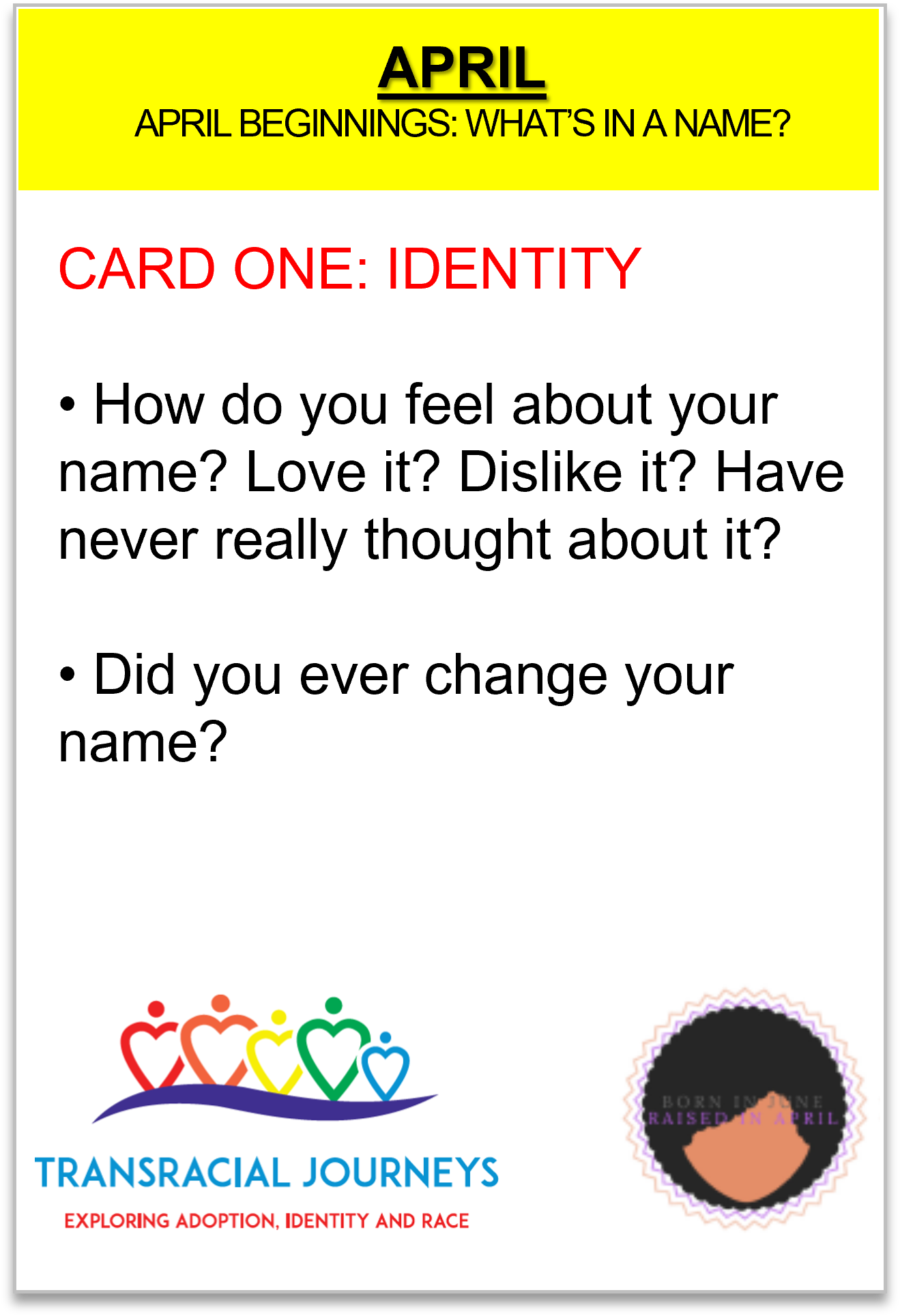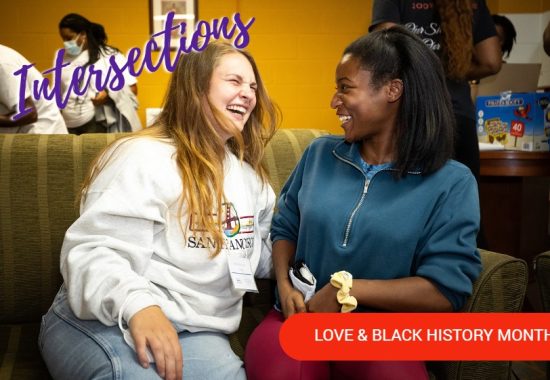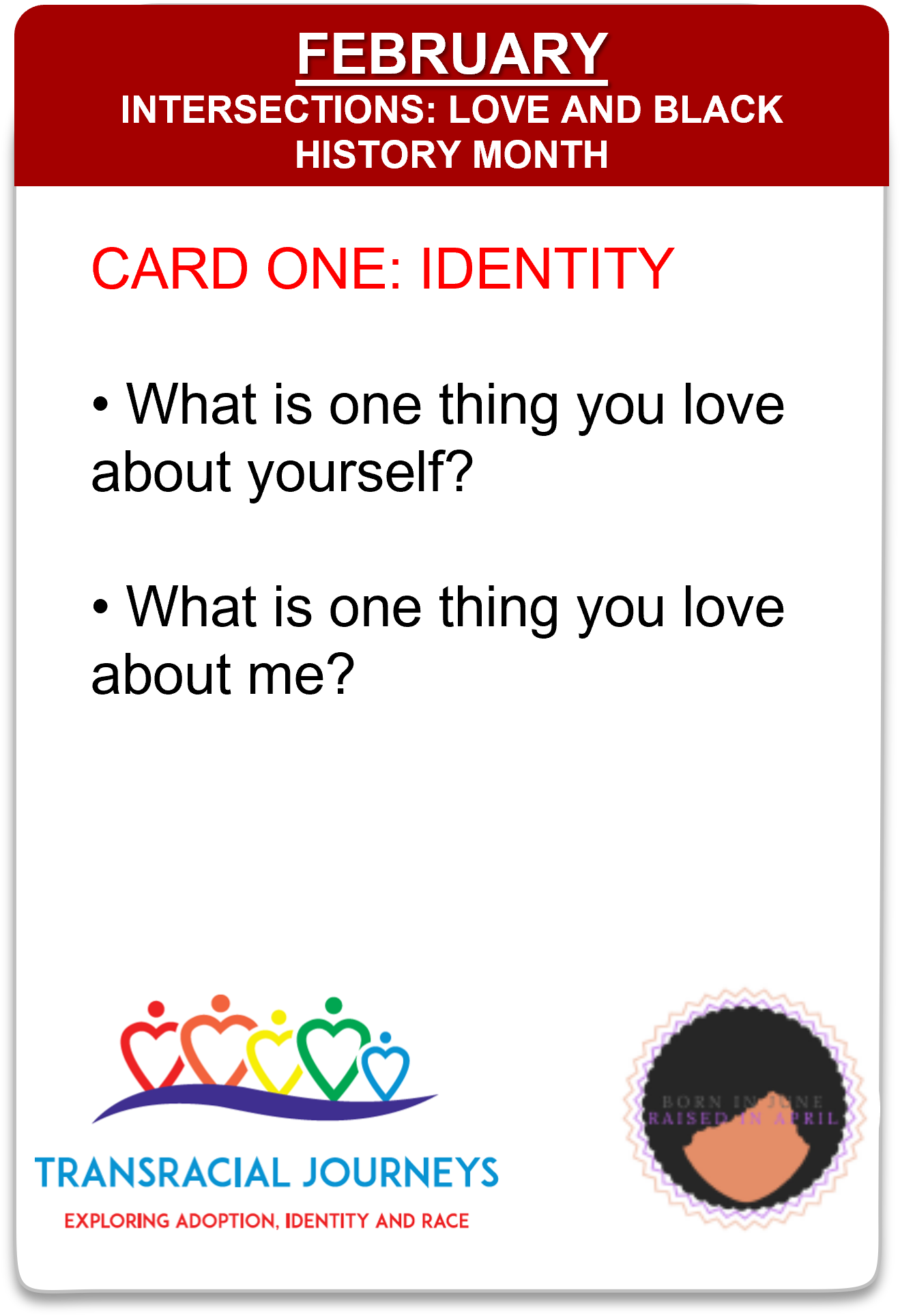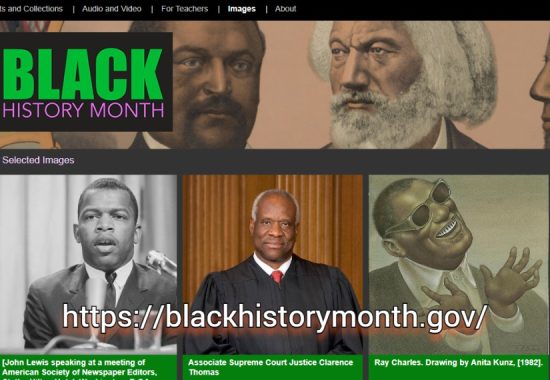Have you had strangers ask inappropriate questions of you and your family?
“Is she/he/them yours?”
“Where are they from?” -
“Your child is SO lucky”.
These invasive questions are part of being a family that does not match and where differences of race are obvious to the world around you. It is important to be prepared for these intrusions.
March Pro-Tip to Foster Conversations About Transracial Adoptions
At Transracial Journeys we send our families conversation cues each month, from our Transracial Journeys card deck, given to all our families at Family Camp. The card deck contains three cards for each month, designed for the children to ask their parents. Below are the questions for March. Before letting your child get started, prepare by reading the parent pro-tip, from the Parent Guide, each month.
March Pro-Tip for Parents: Make sure you have thought about specific times when moments of intrusion or inquiry have happened to your family. Think about the conversations you have had with friends and extended family when they were reflecting on how they feel or think you and your children should feel about adoption. These are intricate and complicated realities and thinking about them and talking about them will help ease what often lives under the surface.
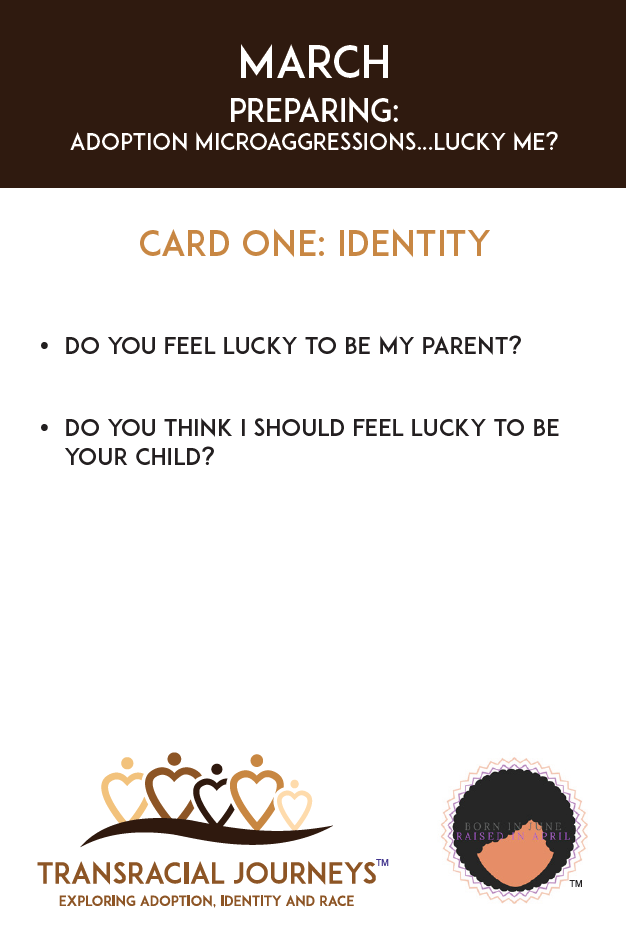
CARD ONE: IDENTITY
• Do you feel lucky to be my parent?
• Do you think I should feel lucky to be your child?
CARD TWO: RELATIONSHIPS
• How do you explain our family to friends and family? How about to strangers that ask about us?
CARD THREE: EMBRACING AND FACING DIFFERENCES OF RACE AND CULTURE
• What are some unlucky things about adoption?
This post is from our March, 2024 e-newsletter. Pictures on the website are from Family Camp. If you would like to get our newsletter in your inbox each month, with Family Camp updates, please subscribe. You will get invitations to our Parent Meet-Up each month, a virtual meeting to act as a transracial adoption support group - sharing issues, ideas and strategies for creating a culture of communication and curiosity in your home, as well as monthly card prompt to keep the conversations about race, adoption, family, love and relationships front and center all year long. And lastly, you'll always be made aware of important dates for our main event; Transracial Journeys Family Camp!

